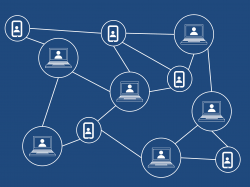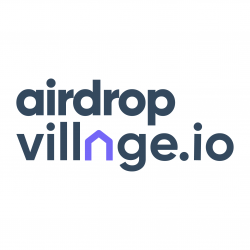„If it has value, Kuverit“ is the slogan of new airdrop company presented here, at Airdropvillage.io.
What are Kuverit’s goals and principles?
Kuverit is committed to establishing a fully independent, global insurance company. Leveraging their team’s 50 years of combined experience in the London insurance and financial markets, they are looking to change the face of insurance around the world.

They believe in transparency, that a customer should be able to see who is taking commissions and fees on an insurance transaction. Furthermore to understand the terms and conditions in detail before any contract is signed, rather than find out when the small print is used against their claim. Customers should not only feel satisfied and like the way they are covered by the policy, but they should also be aware of what will happen when they make a claim and how to proceed with it.
For this reason, Kuverit is putting their customers at the very heart of every operation they do. By employing blockchain to ensure the integrity of data, streamline acquisition, and business, operational and claims processing, and execute the terms of contracts down to a tee.

This Dublin based company is focused on harnessing the 3 key features of blockchain; transparency, immutability, and security. These features, also integrated into the smartphone application, will enable to revolutionize the fundamental processes on which the insurance industry runs. Utilizing smart contracts and digesting data collected from a variety of sources, the company will be able to process claims with the far richer knowledge base and deeper understanding of events. And that all without the errors a single human tend to make.
More useful information about the platform you can find in their whitepaper on kuverit.io, the home of this new crypto token.
Why do they do it?
Kuverit believes, that we, humans, are at a point in our evolution where commercially speaking time can be reversed. The organizations monopolizing their industries today will likely be replaced with more efficient blockchain alternatives tomorrow.
Kuverit believes in decentralization. Today’s consumers are sick of corporate data breaches. Draconian pricing and prehistoric business systems, and other corporate practices.
This lack of trust creates ever-present friction that leads to missed opportunities and prevention from achieving the full potential. Statistical data suggests that fraud has reached epidemic levels. At a cost of more than three trillion pounds per year globally.
Estimates vary, but the number is soaring as high as 3,24 Billion GBP.
Fraud in the insurance market

The production of fraudulent insurance products by illegal insurance advisers – or ghost brokers – has become somewhat of an art form, with fake health plans and motor vehicle insurance amongst the most popular modes of cheating on consumers.
Fraudulent agreements
Among problems with the insurance, we can count fraudulent agreements, which are one of most common types of fraud.
People searching the internet for deals in the field of insurance policies often find products offering incredible value for a price on legitimate-looking websites. They do not consider that the policy itself could be fraudulent and react quickly to perceived scarcity of available agreements.
 To take motor vehicle insurance as an example, a fraudulent policy is either sold as a doctored policy bought from legitimate insurance companies with false information, or a purely fictitious policy bearing the logo of a legitimate insurance company.
To take motor vehicle insurance as an example, a fraudulent policy is either sold as a doctored policy bought from legitimate insurance companies with false information, or a purely fictitious policy bearing the logo of a legitimate insurance company.
Paying the policy, people believe they are protected until they are stopped by the police or need to utilize a feature in the agreement. The cheated person may then lose their license, have their vehicle seized and even there may occur costs in the case of a crash. Concerning the latter, consumers can end up with a bill in the millions.
Whilst the laws governing such crimes are strict, high premiums sold by legitimate insurance companies combined with a lack of effective industry controls creates the perfect environment for the conservation and further growth of fraud. While the first impact is on the policyholder, it is the legitimate insurance company that is losing the revenue and perceives the reputation loss.
Claims and their results

The effective handling of claims is peak to the success, or bottom of the downfall, of any company in this industry. In fact, by far the largest customer complaint of the industry is the poor handling of claims. This in turn then affects the overall perception of the insurance industry as one that is happy to receive premiums, but very unhappy to pay on claims.
However, it is not only the final claim decision that insurance company makes but the speed of those resolved, that many customers are unhappy about. Traditionally, claims are settled in three phases:
a) Investigation,
b) Collection, and
c) Determination.
During the investigation period, engaged insurance users begin communications, confirming details of the claim event (the accident) and the claim process. Then, the event is inspected and rated, and important data are collected. Lastly, the information is evaluated and payment or refusal is then determined.
The processes and settlements are fairly complicated and, especially for those deriving from standardized policies, bring high management costs, and noticeable disruption to the consumer. Often far too much time is spent on administration, the costs of which can outweigh the value of the claim itself.
And the costs are closely connected to further insurance affection.
Not transparent fees

The final customers should feel satisfied with the cover provided by the company and sure of what will happen should they need to proceed with a claim. They should be able to see who is taking commissions and fees on insurance transactions. Furthermore, they should understand the terms and conditions even before the insurance contract is signed, rather than finding out about the small print when it is used against them to deny a claim.
Instead, the lack of transparency is often a major concern.
The required level of disclosure of commissions, fees, expenses and investment income on premiums varies by jurisdiction, and jurisdictions themselves vary as to their requirements to properly inform customers of the terms and conditions of their agreements.
So what exactly is Kuverit?
Kuverit is a platform that changes the way people will do business with each other, shifting away from the classic centralized insurance model. This new model moves towards a decentralized, P2P (peer-to-peer) system that reduces friction. Furthermore, it reduces pain points. Soon it shall be available on both iPhone and Android. Kuverit P2P application will give anyone, anywhere the opportunity to have their transactions guaranteed and even more awesome features that are currently obscured by a layer of secrecy.
How does it work?
A person (guarantor) shall scan open contracts to find one that suits their risk thresholds, for example, the reputation score of the guaranteed, or a minimum fee for guaranteeing a transaction. Selecting the ‘buy now’ option will then automatically create a smart contract between the three parties. Guarantor, the client (who is tending the service) and the customer.
That it is not clear? Let us explain you further.
Practical example
John needs a program for his new business and finds a developer online, Frank, who has provided him a quote for the job. Frank informs John that website development will cost 5,000 USD and that he requires a 50% deposit prior to the development.
John is afraid, he has never worked with Frank before and is not sure of Frank’s honesty or professionalism. To reassure John, Frank tells him to download Kuverit application. Frank then submits a request to Kuverit network asking for a 2,500 USD guarantee to cover the work he is going to undertake for John.
 The request will then be shown to all token holders with at least 2,500 USD worth of KUV Tokens in their wallet. This amount is counted of the free tokens, not ones that are used already for other projects. These users can then assess Frank’s reputation score and, if they are happy, submit a fee in the form of a bid. The Guarantor can set their own fee for providing the insurance. The application suggests no more than 5%.
The request will then be shown to all token holders with at least 2,500 USD worth of KUV Tokens in their wallet. This amount is counted of the free tokens, not ones that are used already for other projects. These users can then assess Frank’s reputation score and, if they are happy, submit a fee in the form of a bid. The Guarantor can set their own fee for providing the insurance. The application suggests no more than 5%.
Frank accepts a fee bid of 2.5% (25 USD) from the Guarantor to cover the job – 10% of this fee is paid to Kuverit to cover its expenses. The fee is withdrawn from Frank’s wallet and transferred to the wallet of the Guarantor. The tokens guaranteeing the job (2,500 USD) are then withdrawn from the wallet of the Guarantor and placed into our Guarantor Vault.
The bidding system on the platform creates competitiveness among its users and ensures fairness.

It allows any Guarantor with the collateral to bid on the deal. All events are conducted P2P and manually chosen and approved by Guarantors.
Following the establishment of the application, the company will turn our attention to the creation of Kuverit insurance – a fully independent, blockchain-based insurance company utilizing smart contracts to provide a streamlined service with an emphasis on transparency, fairness, and finality.
Join the Kuverit airdrop here.



